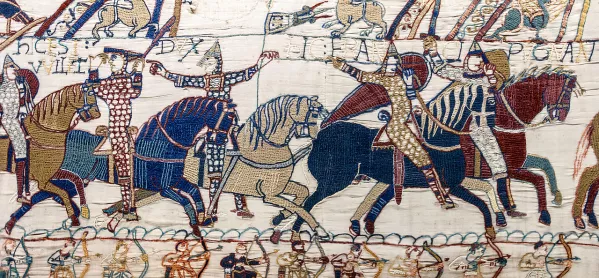An article published by the largest network of schools in England has advised schools to “cut back” content in key stage 3 history, in favour of skills.
The magazine published by PiXL was distributed at its history subject conference in London last month attended by 600 teachers from 400 schools.
The article, written by PiXL history associate Sam Slater, who is also head of history at Chatham Girls’ Grammar School in Kent, advised schools to “cut back on content and embed skills”.
In a section entitled ‘Embed the more straight forward historical skills at KS3’, Ms Slater wrote that she had taken this approach since the new national curriculum was introduced.
She wrote: “From the beginning of the new specification, I had identified skills that I felt were able to be taught and consolidated confidently.
“I have shared my approach with my PiXL colleagues since last year.
“I have seen teachers start to re-think their KS3 programme this September and this makes me so happy; it really is a necessary ingredient for success at GCSE.
“If you haven’t re-planned your KS3 curriculum, start now. Cut back on content and embed skills.”
PiXL has previously caused controversy over claims it has given schools advice about how to ‘game’ their exams results.
In 2016, Sean Harford, Ofsted’s national education director, met the organisation to discuss the advice it gives schools.
And last week a spokesman for the inspectorate referred to the ”Pixilification of education”, saying that Ofsted’s new inspection framework would “reduce schools’ need to spend resources on external consultants, and focusing them back on the substance of education”.
Mark Lehain, director of the Parents and Teachers for Excellence group, told Tes: “It is for schools and their teachers to determine how they think it is best to organise learning into a coherent curriculum programme.
“We know that ‘skills’ are domain-specific, and only really emerge once substantial underlying knowledge has been mastered by students.
“As such the most effective curricula tend to increase, not decrease, the rigour and substance of knowledge in them, understanding that this is the best way to develop subject-specific ‘skills’.”
Rachel Johnson, director of strategy at PiXL, told Tes that the organisation does not make the kind of recommendation mentioned in Ms Slater’s article, and that it did not reflect PiXL’s view.
She said that the history conference included other sessions that were about knowledge.
She said: “We believe that knowledge is fundamental to all that we do, and it’s our job to make sure that children understand what they do and don’t know, and to deepen their knowledge and help them to apply it. A lot of what PiXL does is around that.”
She cited a range of knowledge-based PiXL resources, including PiXL Spine, which is due to be released in March 2019 and, according to the organisation’s website, aims to address “the key concepts and skills in each subject and developing cultural capital at KS3”.




